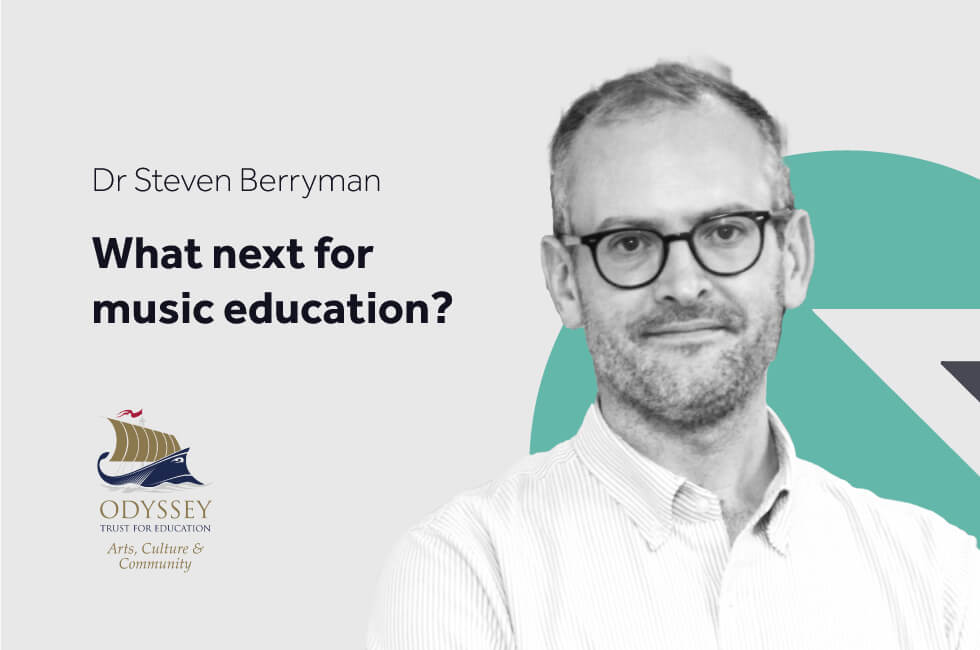As we move into the second year of our work at the Foundation for Education Development (FED) and following the launch of the FED National Education Consultation Report, we hosted a series of roundtable discussions seeking to answer the theme ‘Whatever happened to…?’. This roundtable discussion focussed on ‘Whatever happened to….music education?’
We asked Dr Steven Berryman, Director of Arts, Culture and Community for the Odyssey Trust for Education and a Visiting Research Fellow at King’s College, London, and Guildhall School of Music and Drama, to share his insights following this roundtable discussion. Steven reminds us that he has ‘yet to meet a Senior Leader who does not want music on the curriculum’ and challenges us that ‘the question is not why should we study arts in schools, but why would you not?’
What next for music education?
Often when asked what music education needs next a typical answer is funding. We need more. There is a rhetoric of decline. We have less. But it is a narrative that grates on me, hugely, as an educator in schools it’s not what I see and feel. Yes, I would like more of many things. But there is a keenness from all levels of leadership to have music as part of the curriculum and as part of the life beyond the classroom for as many children as possible. I am yet to meet a Senior Leader who does not want music on the curriculum, or would not want to hear singing in assembly, or attend a concert. Covid restrictions made many of these challenging, and ONS reported (Why arts subjects were hit so hard in the pandemic | Tes Magazine) that the arts of all subjects were the most affected by lockdowns. Music educators will also know all too well how difficult it was to teach our subject well amidst many restrictions, and online platforms rarely can cope with the demands of music (but improvements are taking place).
The centrality of the classroom music teacher needs rekindling as this role is vital in every school to ensure children get equitable access to a classroom music education. What next for music education is putting the heart of music in schools back through elevating the importance of the classroom music educator in not only leading the subject in the classroom but leading the musical culture of the school. They ensure all children and young people have space to develop their interests as well as space to develop increasing expertise in particular musical practices. Yes, this is not a cheap endeavour; no classroom music educator can be versed in all musical practices and a rich array of subject-specific professional development and resources will be important. We are spoilt for choice with regards to practitioners, organisations and charities ready to connect with schools and support our work.
My colleague put it brilliantly: the question is not why should we study arts in schools, but why would you not? Music is part of the childhoods of all our pupils (Two-thirds of British children make music, study finds | Music | The Guardian); let’s ensure school can connect with those musical lives, enhance and enrich them with the expertise of a classroom music teacher who can signpost and connect with partners beyond the school gates. Music education is an ecology of many actors and the approaching refreshed National Plan for Music Education will hopefully reaffirm the importance of working collegiately so all children can access a music education we can continue to be proud of.
Click here to read more blog posts.
The FED are happy to share blogs. The views outlined are those of individual authors and do not necessarily reflect the views of the FED. Please contact us if you would like to submit a blog.



